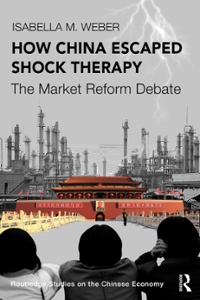Question
8.1: In an economy which is characterized by perfect competition in the goods and labor market, the owners of capital get two-thirds of national income,
8.1: In an economy which is characterized by perfect competition in the goods and
labor market, the owners of capital get two-thirds of national income, and the workers receive one-third. Assume a Cobb-Douglas aggregate production function.
8.1A: The men stay at home in this economy, while the women work in factories. If
some of the men started working outside the home so that the labor force increased by 5
percent, what would happen to the measured output of the economy? Does labor productivity (output per worker) increase, decrease or stay the same? Does total factor productivity (A) increase, decrease, or stay the same? One way to solve exercise., assume A=1, K=1, L0=1 and L1=1.05.
8.1B: In year 1, the capital stock was 6, the labor input was 3, and output was 12. In
year 2, the capital stock was 7, the labor input was 4, and output was 14. What happened to total factor productivity between the years?
8.3: Assume an economy which is characterized by perfect competition in the goods
and labor market, in which the owners of capital get one-third of national income, and the
workers receive two-thirds. Assume a Cobb-Douglas aggregate production function.
Assume that total output and total capital stock grow at 3.6 percent per year, and that labor input grows by one percent per year. Use the growth-accounting equation to divide output growth into three sources - capital, labor, and total factor productivity - how much of output growth would you attribute to each source?
8.4. If GDP per capita in Sweden (in 1995 prices) in 1995 and 2000 were 194 and
222 thousands of kronor, what was the average annual rate of economic growth during this 5-year period?
8.5. If a variable during a 30-year period increases by 54 percent, what average
annual growth rate does this correspond to?
8.6. If the growth rate of GDP per capita was 2 percent between 1960 and 1990, and
the population growth rate was 3 percent during the same period, what was the growth rate of GDP during this period?
8.7: Assume that GDP per capita in Sweden and Zambia in 2002 were 16000 and
800 USD, respectively, and that the growth rate of GDP per capita in Sweden and Zambia is 1 and 7 percent, respectively.
a) How does the absolute difference between the 2 countries develop over time?
That is, GDP per capita in Sweden - GDP per capita in Zambia.
b) How does the relative difference develop over time?
That is, GDP per capita in Sweden/GDP per capita in Zambia.
USE EXCEL to answer these questions.
8.8: If your wage is 100 kronor and the growth rate is 5 percent, how many years
does it take for your wage to double?r
Step by Step Solution
There are 3 Steps involved in it
Step: 1

Get Instant Access to Expert-Tailored Solutions
See step-by-step solutions with expert insights and AI powered tools for academic success
Step: 2

Step: 3

Ace Your Homework with AI
Get the answers you need in no time with our AI-driven, step-by-step assistance
Get Started


